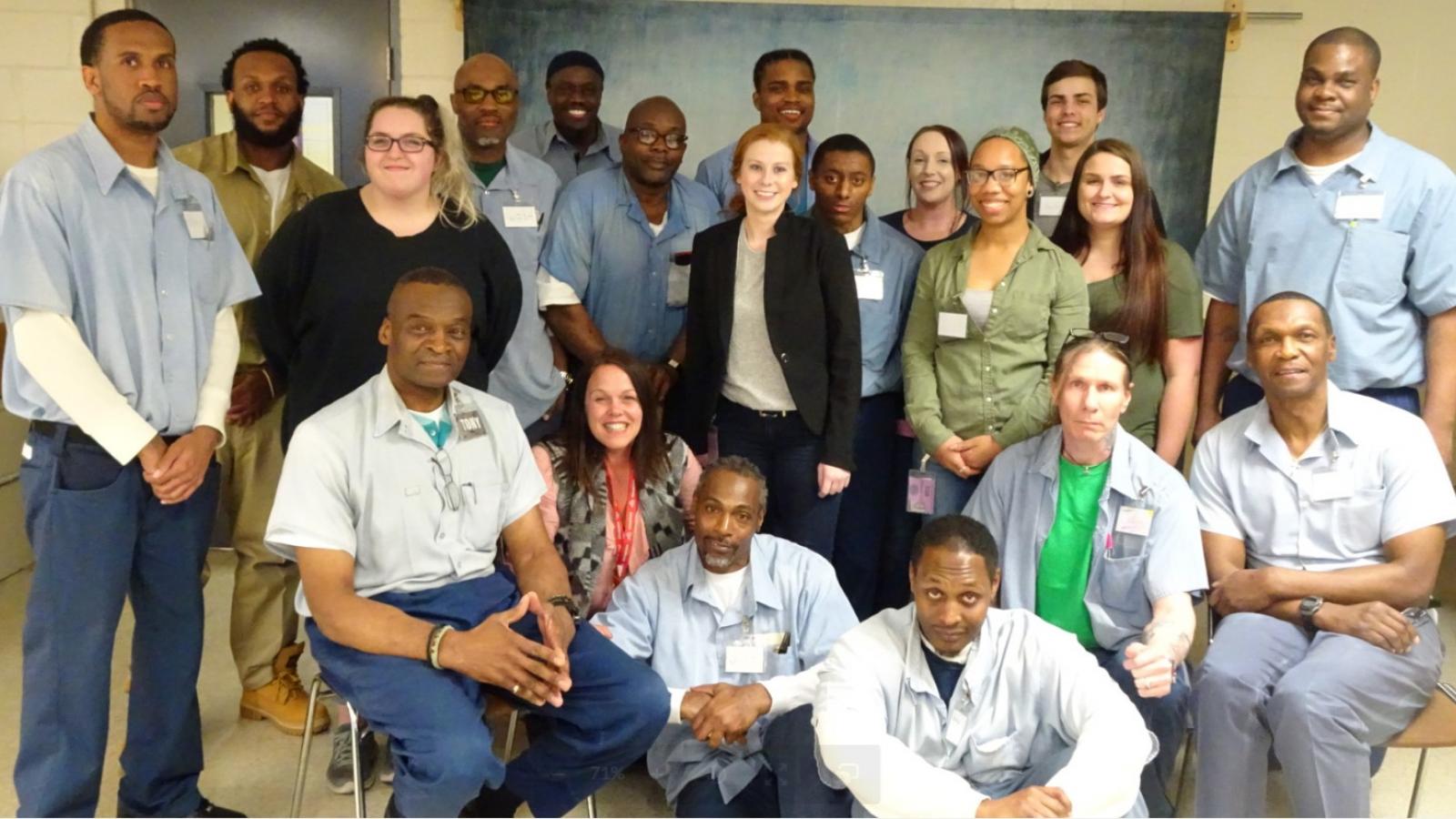The history of prison education at OSU begins with the Inside-Out Prison Exchange Program®, an international initiative directed at transforming ways of thinking about crime and justice. The program was founded by Lori Pompa at Temple University in 1997 to bring college students ("outside students") and incarcerated individuals ("inside students") together in a classroom setting in the hopes of developing an innovative partnership between institutions of higher learning and prison systems.
In 2009, Angela Bryant, Associate Professor in the department of Sociology at Ohio State Newark, was awarded an OSU Service-Learning Course Development grant to develop and teach OSU’s first “Inside-Out” course at Southeastern Correctional Institution (SCI) in Lancaster, Ohio. Dr. Bryant went on to teach the same corrections course each fall semester at SCI from 2009-2019. Thanks to support from OSU Newark Dean and Director Bill MacDonald, Dr. Bryant was able to utilize non-state subsidy funds to ensure all incarcerated students enrolled in her courses received college credit from 2011-2017. Dr. Bryant also helped recruit more faculty members from various departments around the university, expanding the number of OSU courses offered in Ohio prisons each semester.
Dr. Brenda Chaney, Senior Lecturer in the department of Sociology at Ohio State Marion, offered her first course at the Ohio Reformatory for Women in 2012, titled “Issues in Globalization.” Dr. Chaney also began teaching at Marion Correctional Institution in 2017, offering coursework on the “School to Prison Pipeline.” Mary Thomas, current OPEEP Co-Director and Professor in the department of Women’s, Gender and Sexuality Studies, taught her first OPEEP course at Franklin Medical Center in 2019, titled “Feminist Perspectives of Incarceration in the U.S.” Tiyi Morris, current OPEEP Co-Director and Associate Professor in the department of African American and African Studies at Ohio State Newark, also taught her first OPEEP course at Franklin Medical Center in 2019, titled “Social (In)Justice and the Black Experience.”
Today, OPEEP honors the rich legacy of prison education at OSU by continuing to expand course offerings and academic programming in numerous prison facilities around the state. In the 2023-2024 academic year, the project will facilitate course offerings and academic programming across five different Ohio prison facilities: Ohio Reformatory for Women (Marysville), Southeastern Correctional Institution (Lancaster), Richland Correctional Institution (Mansfield), London Correctional Institution (London), and Allen-Oakwood Correctional Institution (Lima). In December 2022, OPEEP Co-Directors Mary Thomas and Tiyi Morris received a sizeable grant from the Mellon Foundation to support their academic research and the project's plans to establish an embedded degree program at the Ohio Reformatory for Women. In comparison to male prisons, women’s facilities have significantly fewer higher education programs, which points to the significance and singularity of OPEEP’s embedded degree program. The program will begin by offering coursework towards an Associate of Arts degree in Women’s, Gender, and Sexuality Studies, eventually building up to a Bachelor of Arts degree in the same major. In the past several years, OPEEP has consistently offered 1-4 courses each semester at ORW, with subjects ranging from Literatures of Addiction to Drawing as Feminist Art. In addition to increased course offerings, OPEEP also facilitates meetings for the “Liberation at the Margins” (or “LAM”) collective, the project’s satellite learning community at ORW. Current members of the LAM collective include leading incarcerated students at ORW and experienced OPEEP instructors and staff. Members are united by a shared commitment to collective liberation through feminist scholarship and advocacy, along with collective dedication to intellectual and professional development more broadly. Although still several semesters away from admitting the first official cohort of AA students at ORW, confidence in the project's overall trajectory remains high, thanks largely to the continued evolution of our partnerships with ORW and ODRC (Ohio Department of Rehabilitation and Correction) as well as generous financial support from institutions including Ohio State and the Mellon Foundation. More specifically, financial support awarded to OPEEP by Ohio State’s executive vice president and provost, Dr. Melissa L. Gilliam, has allowed the project to hire additional staff and expand significantly in terms of daily operations and capacity for growth. Despite all this growth for the project in terms of awareness, support, and staff capacity, occasional feelings of doubt and frustration remain inevitable. In moments like these, we often take respite in the wisdom of leaders and elders of past social justice movements, like Dr. Martin Luther King Jr., who reassured us “the arc of the moral universe is long, but it bends toward justice.”

